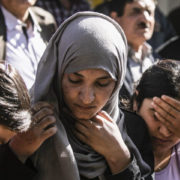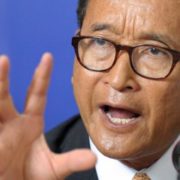The recent summit between Russian President Vladimir Putin and North Korean leader Kim Jong Un was not so much about Korea as it was about Russian renewed global play.
The original structure of the North Korean talks was right: it included six parties and identified Russia as an important element of the political alchemy. In the 1950 Korean War, in fact, the USSR encouraged Pyongyang to start the fight and forced China to participate when it was reluctant to do so.
Today the real question perhaps is: what role does President Vladimir Putin want to play in Korea? As a true neo-Byzantine power, Moscow wants its fingers in as many pies as possible and then asks the ally (whether China or the US) for the highest possible price. In this, Moscow objectively threatens to open a multiplicity of tense scenarios.
Moreover, Moscow may be a very interesting partner for Kim, already a careful player in multi-front games (saying one thing to the Chinese and another to the Americans, and maybe still another to the Japanese). The Putin-Kim meeting multiplies elements of uncertainty and instability that Russians and North Koreans can each play on their own, to blackmail or press the Americans or Chinese to make concessions.
After the break between Moscow and Beijing in 1960, Kim Il Sung, grandfather of the current leader, for decades developed the country by playing the Russians against the Chinese. Today the game for Pyongyang is with five performers, not two, and perhaps it is easier, at least for now. In fact, there is also South Korea, which seeks peace by pursuing the North and accentuating certain controversies with Japan and a distance that could be growing with the United States.
For the US, the game could be very dangerous. At the end of the 1930s, Stalin (a Georgian, truly a carnal heir to the Byzantine Empire) first played with the Germans on one side, and then, when attacked by Hitler, was saved by the support of the Americans. Out of all this, the USSR, a country close to collapse in the 1930s, emerged in 1945 as a great global power. Perhaps there is a lesson for Putin here.
The Pope could also be pulled into this play, as Putin should come to Rome to meet him in the near future.
This are not simply anti-American bids. The alliance with Moscow objectively puts pressure on China, which today can manage Pyongyang less than effectively yesterday, when it was already difficult to handle. North Korea today is in fact stronger in requesting a cut in US sanctions in exchange for commitments to disarmament that many in Washington consider uncertain.
Washington does not like to be blackmailed, so it may not be happy with what is happening. Today the number of requests about Korean policies has multiplied: in addition to new pressures from Pyongyang, there is also Tokyo feeling under threat by North Korea and irritated by some gestures of other neighbors. To cope with all the different pulls in the Korean-Chinese scenario, Washington needs a new imperial strategy; otherwise it risks being tortured and killed by bites of too many flies (see The World of three Empires).
Beijing is used to managing Pyongyang in tandem with Moscow. There is no news there. The news for Beijing is the multiplication of negotiating tables. Here if the US has difficulties, the Chinese could have even more problems, because about North Korea, Beijing could easily turn from a player into the real stakes – that is, China could become the piece of cake that everyone wants a slice of. A very complicated game that China may underestimate is actually beginning for Beijing.
In all of this Kim’s game with US President Donald Trump is not over. Possibly, Kim’s first goal is not a pact with Russia or China, but with the US. America alone that can give Pyongyang a different future from 70 years of socialism and the current misery. But it is difficult to understand whether the current move with Moscow brings Pyongyang’s goal closer or further away. This also depends on how all the other players at the table will move in the coming days and weeks.
The South Korean have an extremely important role. Tokyo fears anti-Japanese feelings in the region and in South Korea. Some people near President Moon Jae-in may think that Japan is a greater danger for South Korea than Pyongyang. They are minority voices, but they are the barometer of the increasing unease there.
It is necessary a deep rethinking in South Korea, but perhaps some extra effort is also needed in Japan, which, unlike Germany in Europe, has more unsettled accounts pending with its neighbors because of the history of World War II. On the other hand, all of East Asia must turn a page on history and stop using it for present political gains. World War II ended 74 years ago, we need to draw a line here. For this perhaps we would need a great new regional peace pact, but some countries in the region, possibly weaker and poorer, may not be interested in it as they may believe they have more to gain in stirring trouble.





